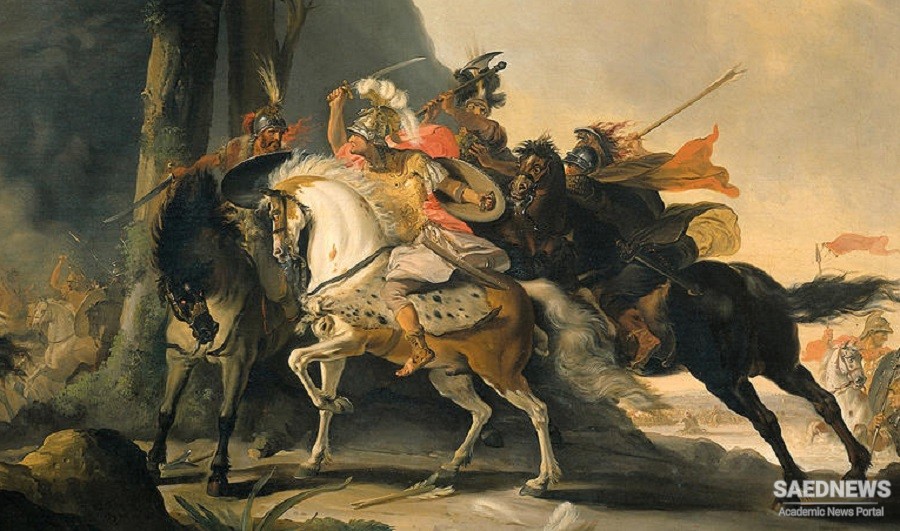The Achaemenians proclaimed that they were Persians, and received the realm from the supreme god Ahuramazda. Later the Sasanian clergy taught that the kingdom and the (true) religion were twins. The Seleucids were of Macedonian stock, but they neither ruled over Macedonia nor had any authority over Macedonians abroad, and they commanded peoples not "by the grace of God", but by the right of the spear. They were neither native rulers, nor the instruments of a "colonial" power, but just lucky condottieri. Their power was not institutional but personal. In the battle against Molon, a rebellious general, the latter's troops went over to Antiochus III as soon as they saw their legitimate sovereign, but the other wing of Molon, not seeing the king in person, fought stubbornly against the king's regiments. In fact, the Seleucid Ship of State was not anchored in the heavens, but moored to the mutual "good will' {eunoia) between the ruler and the ruled. Antiochus I recovered the dominion of Seleucus I, his father, "by his valour as well as by the good will of his friends' and his troops". In turn, the ruler had to "win over" his subjects by his own eunoia. It was not a constitutional arrangement, but a political necessity. The diademed condottiere was isolated; he could not even rely on his tribe (as for instance, the Saljuqs did), since he had none. His "friends", that is, his court, from which he had to choose his generals and ministers, were an international lot, mostly men as uprooted as their master and who were attached to him personally by his bounties and their fellow-feeling. An Acarnian, a former "friend" of the king of Macedonia, passed to "the more opulent court of Antiochus [III]", and became his adviser. The king's army, his administration, his colonies and the Greek cities in Iran were no less international; Macedonians, Thessalians, other Greeks and various non-native elements were partners in exploiting the Orient and were as isolated in the immense alien country as the king himself. They all had to sink or to swim together. This was the real meaning of the mutual "good will" of which we have just spoken. The administrative organization of the realm was simple in principle, but complex in practice. Alexander and the Seleucids preserved the Persian division of the empire into enormous satrapies. The Iranian satrapies were placed under a viceroy, "one [who is] over the upper satrapies", who resided in Ecbatana. The satrap was above all the general commanding the troops in his province. The satrapy was divided into districts, called "places" (topoi). But such a district could be a Greek city, a military ward (phylake), or a group of native villages.


 Seleucid Empire: Ups and Downs
Seleucid Empire: Ups and Downs














































